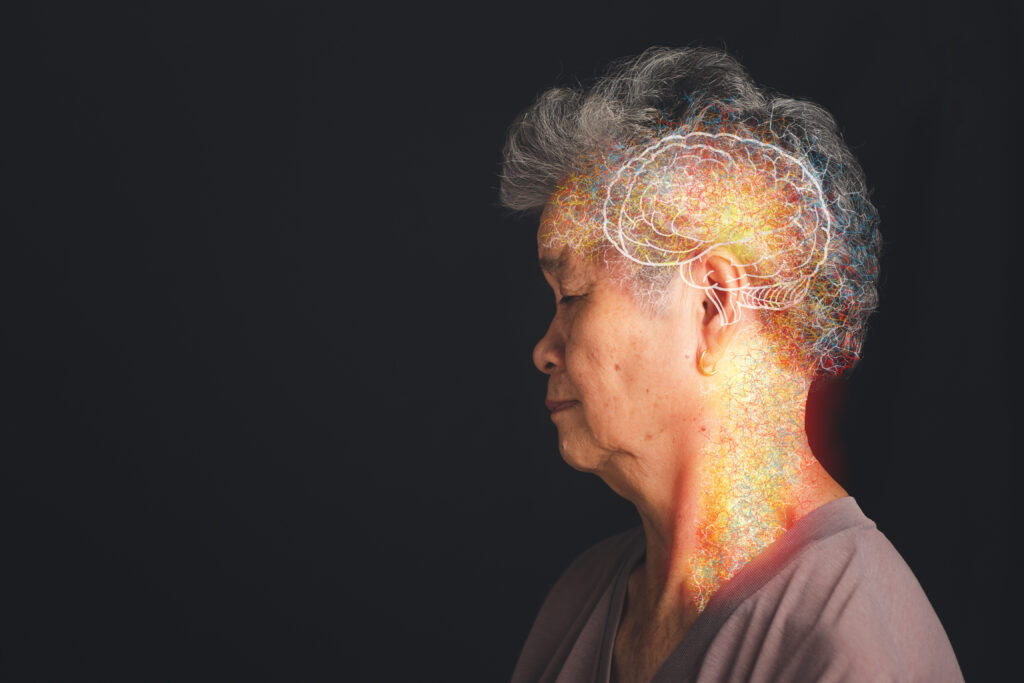
Parkinson’s disease is a progressive neurological condition that affects movement and is characterized by symptoms such as tremors, stiffness, and difficulty with balance. While Parkinson’s disease is primarily known as a movement disorder, it can also have an impact on cognitive function and increase the risk of developing dementia.
Studies have found that up to 50% of people with Parkinson’s disease will develop some form of dementia over time. This type of dementia is often referred to as Parkinson’s disease dementia (PDD). PDD is a specific form of dementia that affects people with Parkinson’s disease and is characterized by a decline in memory and other cognitive abilities.
The exact cause of PDD is not yet fully understood, but it is thought to be related to changes in the brain that occur as a result of Parkinson’s disease. Research has found that people with Parkinson’s disease often have changes in the brain related to the buildup of abnormal protein deposits, including alpha-synuclein, which is associated with the development of Parkinson’s disease. Additionally, Parkinson’s disease can also cause changes in brain chemistry, including a decrease in the levels of dopamine, a neurotransmitter that is important for movement and cognition.
The onset of PDD can be difficult to predict, as some people with Parkinson’s disease may experience cognitive decline earlier in the course of the disease, while others may not experience cognitive decline until later on.
PDD typically develops later in the course of Parkinson’s disease, after motor symptoms have been present for several years.
Additionally, the rate of cognitive decline can vary greatly from person to person depending on Parkinson’s, Lewy Body, Vascular Dementia being the root cause – which can be difficult to determine as you can imagine.

The symptoms of PDD can be similar to those of Alzheimer’s disease and other forms of dementia, including memory loss, difficulty with planning and problem-solving, confusion, and disorientation. However, people with PDD may also experience additional symptoms related to their Parkinson’s disease, such as changes in speech and communication, difficulty with movement, and changes in mood and behavior.
For those that have Parkinson’s disease, it’s exceedingly dire to be regularly evaluated for signs of cognitive decline, as early detection and treatment can help slow the progression of the disease and improve quality of life. Treatment options for PDD may include medications, cognitive therapy, and lifestyle changes, such as exercise, healthy eating, and stress management.
How Does Parkinson’s Dementia Differ From Lewy Body and Alzheimer’s?

Vascular dementia, on the other hand, is a type of dementia that is caused by damage to the blood vessels in the brain, which can lead to a decrease in blood flow and oxygen to the brain. Vascular dementia typically causes a decline in cognitive function that is more gradual and occurs over a longer period of time compared to other forms of dementia. People with vascular dementia may experience difficulty with memory, problem-solving, and decision-making, as well as changes in mood and behavior.
Lewy body dementia (LBD) is another type of dementia that is characterized by the presence of abnormal protein deposits, called Lewy bodies, in the brain. LBD is a progressive disease that affects movement, cognition, and behavior. People with LBD may experience a decline in memory and other cognitive abilities, as well as changes in mood and behavior, including depression, anxiety, and delusions. Additionally, people with LBD may also experience visual hallucinations and fluctuations in cognitive function, such as periods of confusion and disorientation.
What About Alzheimer’s vs Parkinson’s Dementia?

The symptoms of Alzheimer’s disease can be similar to those of PDD, including memory loss, difficulty with planning and problem-solving, confusion, and disorientation. However, people with Alzheimer’s disease may also experience additional symptoms, such as changes in personality and behavior, difficulty with language and communication, and a decline in ability to perform daily activities.
PDD (Parkinson’s Disease Dementia), vascular dementia, and LBD (Lewy Body Dementia) are different types of dementia that are caused by different underlying mechanisms and can present with different symptoms and patterns of decline. PDD is specific to people with Parkinson’s disease and is characterized by a decline in memory and other cognitive abilities, as well as additional symptoms related to the underlying Parkinson’s disease. Vascular dementia is caused by damage to the blood vessels in the brain and typically causes a gradual decline in cognitive function. LBD is characterized by the presence of Lewy bodies in the brain and can affect movement, cognition, and behavior.





